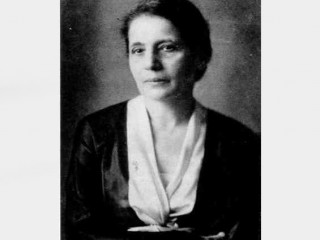
Lise Meitner biography
Date of birth : 1878-11-07
Date of death : 1968-10-28
Birthplace : Vienna, Austria
Nationality : Austrian-Swedish
Category : Science and Technology
Last modified : 2010-10-14
Credited as : Nuclear Physicist, discovered nuclear fission, Nobel Prize for Physics
2 votes so far
At the time, women were not allowed higher education. Meitner’s parents, however, supported her academic ambitions and were able to place her in a private institution. She was then allowed to attend the University of Vienna, where she studied physics under Ludwig Boltzmann. She was only the second woman to earn a doctoral degree in physics in Vienna.
After graduating, Meitner rejected offers of work and with her parents’ encouragement, went to Berlin. There, she attended Max Planck’s lectures and worked with Otto Hahn, discovering new isotopes. In 1912, Hahn and Meitner moved to the Kaiser-Willhelm Institut in Berlin where they continued to collaborate.
During World War I, Meitner worked as a nurse. In 1916, she returned to Berlin and her research, but was deeply affected by the suffering she witnessed during the war. She and Hahn discovered more isotopes and she also discovered the Auger effect. By the 1930s, Hahn and Meitner were racing other prominent research teams to find a way of creating heavier elements in the lab.
In 1933, Meitner was the director of the Institute for Chemistry. Hitler had just come to power and many Jewish scientists, including her nephew Otto Frisch, were forced to leave Germany. Meitner was protected by her Austrian citizenship and remained at her post. By 1938, she was forced to flee to Holland for her safety. She ended up in Sweden, working in Manne Siegbahn’s laboratory.
Through correspondence and secret meetings in Copenhagen, Meitner and Hahn continued their work together. They ultimately discovered how to do nuclear fission reactions, but Meitner could not publish with Hahn due to her exile. Hahn alone received the Nobel Prize in 1944 for the discovery of fission. Many people believed that Meitner was unfairly overlooked for the prize.
In her later years, Meitner, a Swedish citizen, bitterly regretted remaining in Germany from 1933 to 1938. She wished she had put up a fight and protested the eviction of her Jewish colleagues. She also felt great remorse that her discoveries ultimately lead to nuclear weapons. She refused a position working on the Manhattan Project, not wanting to be a part of making bombs. She died in 1968 in Cambridge where she had lived since 1960.
















